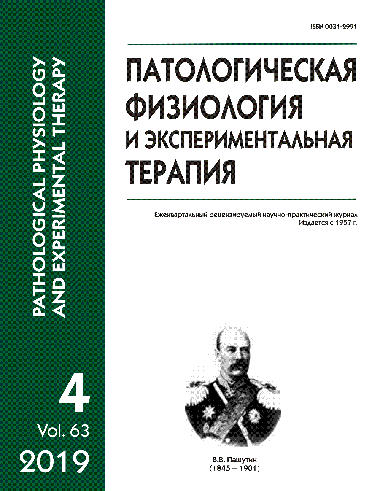Characteristic of leydig cells from newborn offspring of female rats with experimental type 1 diabetes
Abstract
Numerous clinical observations have shown that maternal diabetes adversely affects pregnancy and childbirth as well as the development and condition of the fetus. These women often give birth to children with signs of diabetic fetopathy. However, the effect of type 1 diabetes mellitus on morphology and function of the male offspring reproductive system is still understudied. The aim of the study was evaluating morpho-functional characteristics of Leydig cells in newborn offspring of female rats with experimental type 1 diabetes. Methods. Experiments were performed on Wistar female rats and their one-day offspring. Type 1 diabetes mellitus was modelled in adult, sexually mature females using streptozotocin. Morpho-functional features of testicular endocrine cells were studied in the offspring of female rats with experimental type 1 diabetes in the early neonatal period. The following indexes were determined: area of testicular interstitial tissue; number of active and inactive endocrinocytes; Leydig cell activity index; the ratio of Leydig cells number to the total number of spermatogenic cells; and the ratio of total number of interstitial glandulocytes to the number of sustentocytes. Results. The offspring of experimental rats had a decreased absolute testis weight and testis weight index; an increased area of interstitial tissue; changes in the count of Leydig cells and their subpopulation composition and resultant changes in the Leydig cell activity index. The ratio of Leydig cell number to Sertoli cell number, which are characterized with paracrine interrelations, was decreased. Conclusion. The found changes may underlie disorders of the spermatogenic cycle in the offspring of female rats with experimental type 1 diabetes.






